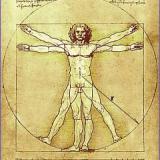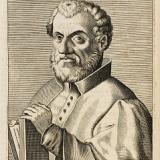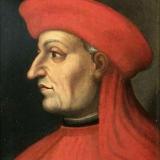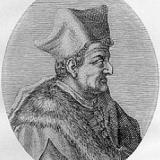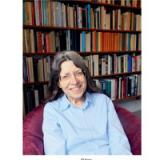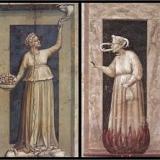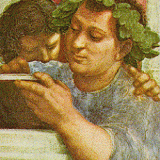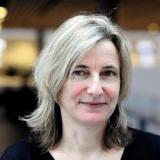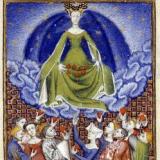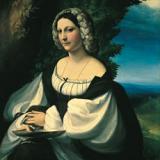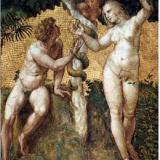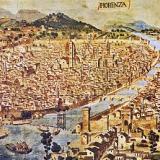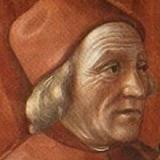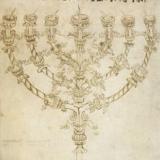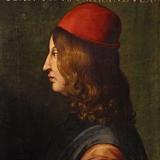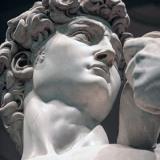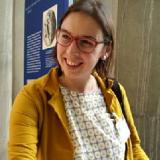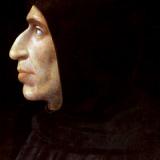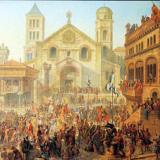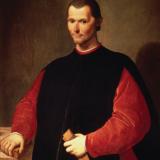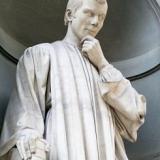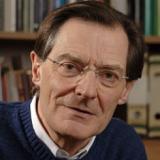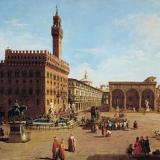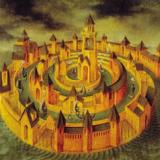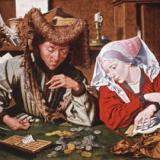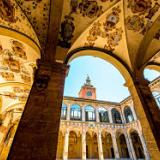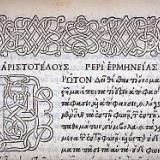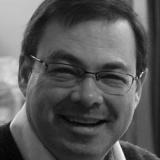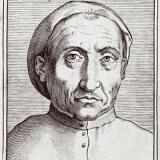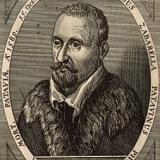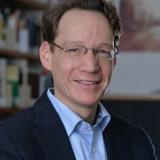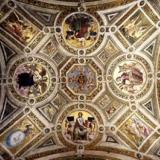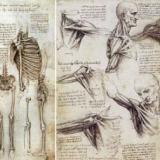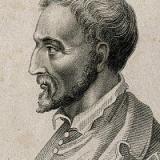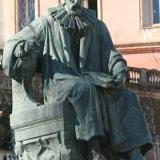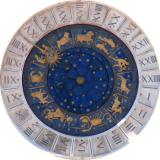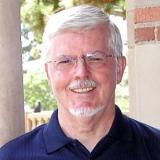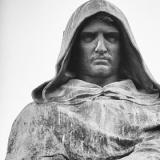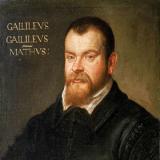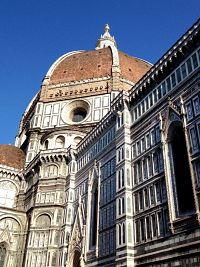Italian Renaissance Philosophy
In these episodes we explore the philosophical riches of the Italian Renaissance, which for the purposes of the podcast will be considered to refer to the 15th and 16th centuries. (Figures of the northern Renaissance, such as Erasmus, are covered in the following "seasons".) During this period we see the rise of humanism with its attention to Latin and Greek language and recovery of such ancient philosophical schools as Epicureanism and Skepticism. Under the influence of visitors from the Greek East, scholars like Marsilio Ficino and Nicholas of Cusa are inspired to revive Platonism, yet traditions of scholastic philosophy also continue with Aristotle and Averroes influencing such thinkers as Pomponazzi and Nifo. It is also a time of great achievement in political philosophy, especially with the thought of Machiavelli, and of explorations in science and alchemy, astronomy and astrology: Cardano, Tycho Brahe, Bruno, and Galileo are just a few of the thinkers we will discuss under this heading. Also in focus will be Jewish philosophers like del Medigo and Abravanel, and women philosophers including Christine de Pizan. And as always the podcast will look at philosophical aspects of other cultural developments, like Renaissance art, history writing, and legal theory. Interview guests include Brian Copenhaver, Sabrina Ebbersmeyer, Guido Giglioni, Dag N. Hasse, Cecilia Muratori, Jill Kraye, David Lines, Ingrid Rowland, Denis Robichaud, and Quentin Skinner.
• R. Black, Humanism and Education in Medieval and Renaissance Italy (Cambridge: 2001).
• C.S. Celenza, The Lost Italian Renaissance: Humanists, Historians, and Latin’s Legacy (Baltimore: 2004).
• P. Godman, From Poliziano to Machiavelli: Florentine Humanism in the High Renaissance (Princeton: 1998).
• E. Garin, Storia della filosofia italiana, 3 vols (Turin: 1966).
• J. Kraye, "The Philosophy of the Italian Renaissance," in G.H.R. Parkinson (ed.), The Renaissance and Seventeenth-Century Rationalism (London: 1993), 1-64.
• P.O. Kristeller, Eight Philosophers of the Italian Renaissance (Stanford: 1964).
• J.M. Najemy, Italy in the Age of the Renaissance (Oxford: 2004).
• J. Monfasani, Language and Learning in Renaissance Italy (Aldershot: 1994).
Posted on
A first look at the themes and figures of philosophy in the Italian Renaissance.
Posted on
Bessarion and George Trapenzuntius, rival scholars from the Greek east who helped inspire the Italian Renaissance.
Posted on
Coluccio Salutati and Leonardo Bruni combine eloquence with philosophy, taking as their model the refined language and republican ideals found in Cicero.
Posted on
Lorenzo Valla launches a furious attack on scholastic philosophy, favoring the resources of classical Latin.
Posted on
Jill Kraye returns to the podcast to discuss the nature of humanism, its relation to scholasticism, and its legacy.
Posted on
Humanists from Bruni and Valla to Pontano and Castiglione ask whether ancient ethical teachings can still help us learn how to live.
Posted on
The rediscovery of Epicurus, Lucretius, and Sextus Empiricus spreads challenging ideas about chance, atomism, and skepticism.
Posted on
An interview with Sabrina Ebbersmeyer about the relation of emotion to reason and the body, and panpsychism, in the Renaissance.
Posted on
Christine de Pizan's political philosophy, epistemology, and the refutation of misogyny in her "City of Ladies".
Posted on
Cassandra Fedele, Isotta Nogarola, and Laura Cereta seek fame and glory through eloquence and learning.
Posted on
Refutation of misogyny in Moderata Fonte and Lucrezia Marinella.
Posted on
The blossoming of Renaissance Platonism under the Medici, who supported the scholarship of Poliziano, Ficino, and Pico della Mirandola.
Posted on
Marsilio Ficino’s revival of Platonism, with a focus on his proofs for the soul’s immortality in his magnum opus, the Platonic Theology.
Posted on
Ficino describes a “Platonic” love purified of sexuality, prompting a debate carried on by Pico della Mirandola, Pietro Bembo, and Tullia d’Aragona.
Posted on
An interview with Denis Robichaud on how, and why, Plato was read in the Italian Renaissance.
Posted on
Jewish philosophers in Renaissance Italy, focusing on Leone Ebreo’s Dialogues of Love, the Averroism of Elijah del Medigo, and Italian Kabbalah.
Posted on
Pico della Mirandola argues for the harmony of the ancient authorities, draws on Jewish mysticism, and questions the value of humanist rhetoric.
Posted on
Pico della Mirandola and Giannozzo Manetti praise humans as the centerpiece of the created world. But what about the other animals?
Posted on
An interview with Cecilia Muratori, an expert on the surprisingly modern ideas about non-human animals that emerged in the Renaissance.
Posted on
The prophetic preacher Girolamo Savonarola attacks pagan philosophy and puts forward his own political ideas, before coming to an untimely end.
Posted on
Did “civic humanism” really make republicanism a newly dominant political theory in the Italian Renaissance?
Posted on
Machiavelli’s seminal work of political advice, The Prince, tells the ruler how to be strong like a lion and cunning like a fox.
Posted on
Peter celebrates reaching 350 episodes by explaining a single sentence in Machiavelli's "Discourses."
Posted on
Leading Machiavelli scholar Quentin Skinner joins Peter to discuss morality, history, and religion in the Prince and the Discourses.
Posted on
Bruni, Poggio, Machiavelli, and Guicciardini explore political ideas and historical method in works on Roman and Italian history.
Posted on
Tommaso Campanella’s The City of the Sun and other utopian works of the Italian Renaissance describe perfect cities as an ideal for real life politics.
Posted on
Leon Battista Alberti, Benedetto Cotrugli, and Poggio Bracciolini grapple with the moral and conceptual problems raised by the prospect of people getting filthy rich.
Posted on
The blurry line dividing humanism and scholastic university culture in the Italian Renaissance.
Posted on
Aristotle’s works are edited, printed, and translated, leading to new assessments of his thought among both humanists and scholastics.
Posted on
An interview with David Lines on the Renaissance reception of Aristotle's Nicomachean Ethics.
Posted on
Pietro Pomponazzi and Agostino Nifo debate the immortality of the soul and the cogency of Averroes’ theory of intellect.
Posted on
Jacopo Zabarella outlines the correct method for pursuing, and then presenting, scientific discoveries.
Posted on
An interview with Dag Nikolaus Hasse on the Renaissance reception of Averroes, Avicenna, and other authors who wrote in Arabic.
Posted on
The humanist study of Pythagoras, Archimedes and other ancient mathematicians goes hand in hand with the use of mathematics in painting and architecture.
Posted on
Connections between philosophy and advances in medicine, including the anatomy of Vesalius.
Posted on
The polymath Girolamo Cardano explores medicine, mathematics, philosophy of mind, and the interpretation of dreams.
Posted on
An interview with Guido Giglioni, who speaks to us about the sources and philosophical implications of medical works of the Renaissance.
Posted on
Was the anti-Aristotelian natural philosophy of Bernardino Telesio and Tommaso Campanella the first modern physical theory?
Posted on
Ficino, Pico, Cardano, and other Renaissance thinkers debate whether astrology and magic are legitimate sciences with a foundation in natural philosophy.
Posted on
Brian Copenhaver joins us to explain how Ficino and other Renaissance philosophers thought about magic.
Posted on
Giordano Bruno’s stunning vision of an infinite universe with infinite worlds, and his own untimely end.
Posted on
Did Galileo’s scientific discoveries grow out of the culture of the Italian Renaissance?
Posted on
For our finale of the Italian Renaissance series we're joined by Ingrid Rowland, to speak about art, philosophy, and persecution in Renaissance Rome.




